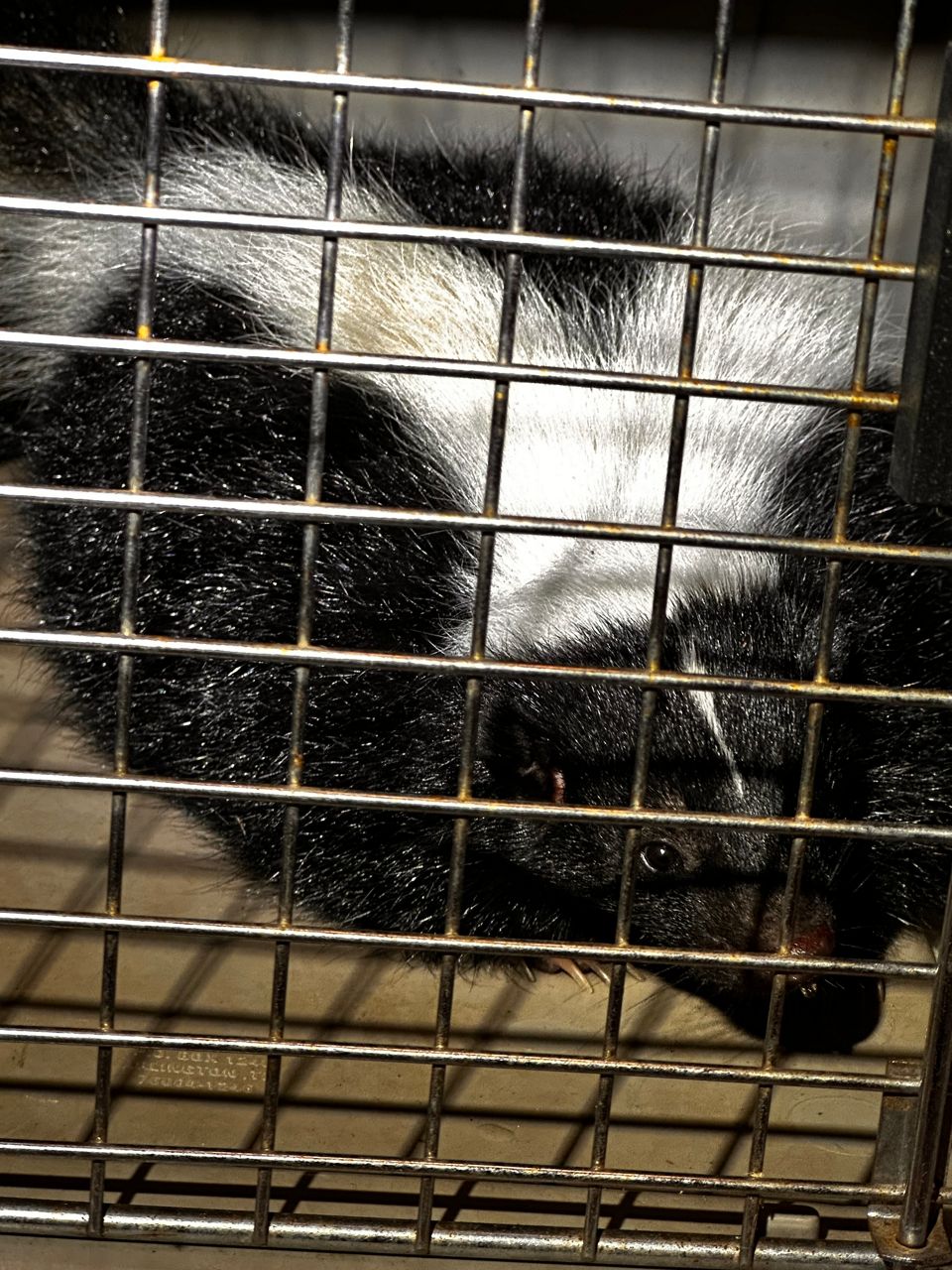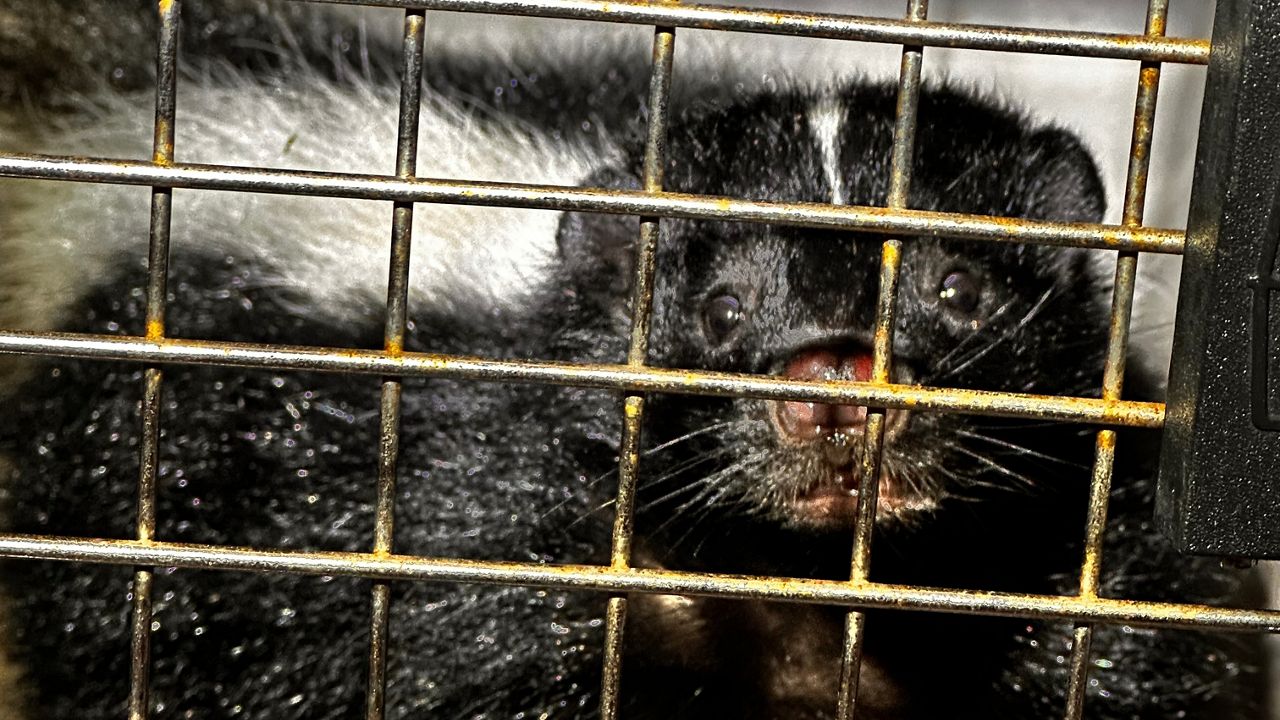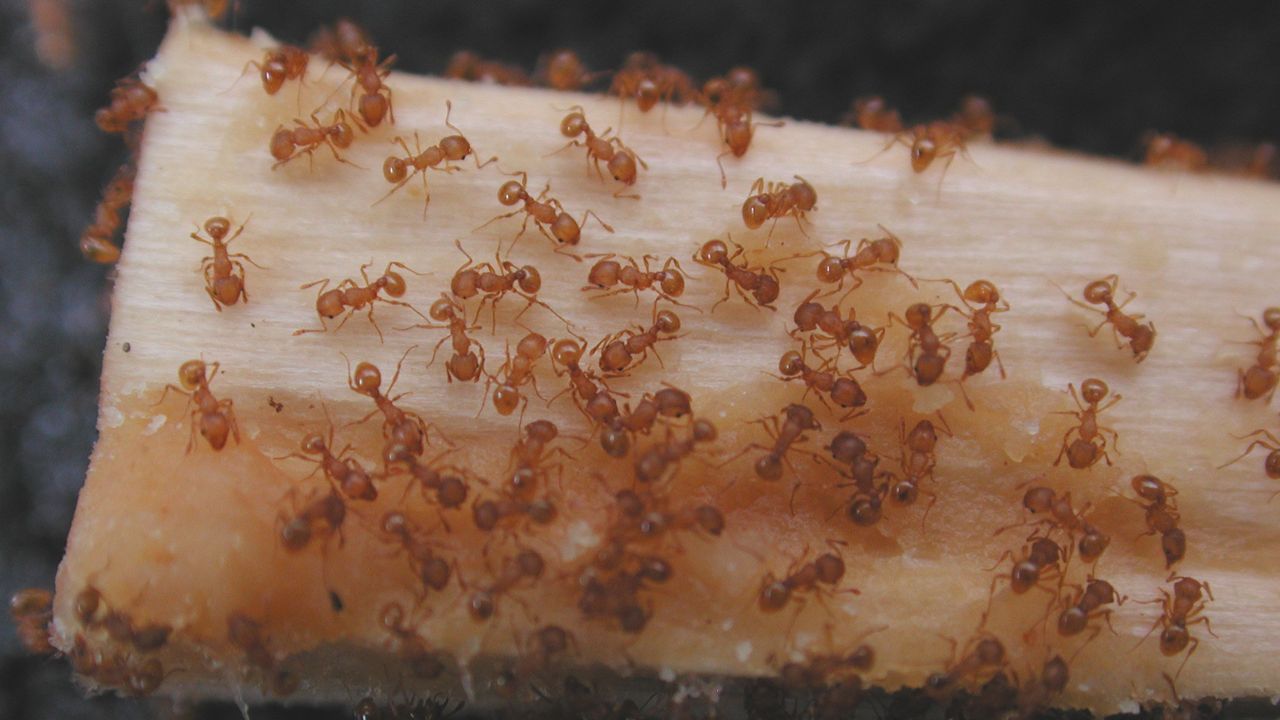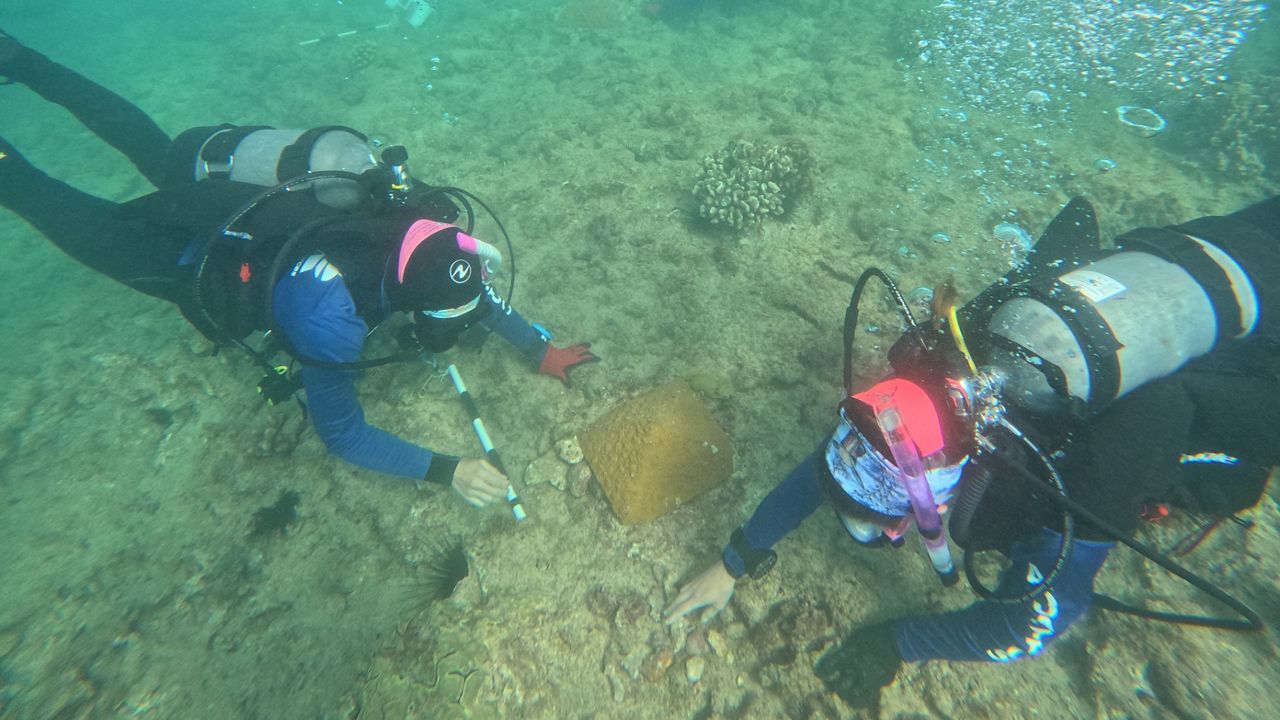Hawaii Department of Agriculture inspectors captured a skunk at Honolulu Harbor on Monday night after tracking the animal for several days.
The skunk was first spotted last Thursday by dock workers, who saw the mammal, which is known for its unpleasant scent, running around the parking lot at Pier 1 and reported the sighting to HODA's Plant Quarantine Branch around 3 a.m.
Inspectors set traps in the area, but did not capture the skunk.
At midnight Friday, security personnel from the U.S. Immigration Office at Pier 1 contacted HDOA and reported seeing the skunk on security footage entering and exiting the property through a fence.
Inspectors again responded and attempted to capture the skunk, but were unsuccessful.
On Monday at 8:30 p.m., USIO security reported seeing the skunk take shelter under a cargo container used for storage. Three inspectors responded and used a pole and wooden boards to coax the animal out of its hiding spot and capture it with a net, while braving the animal's odoriferous natural defense system.
HDOA is testing the skunk for rabies. The state agency said it’s not clear what ship the skunk hitchhiked to Oahu on and how long it has been here.
Inspectors previously captured skunks at Pier 1 in Feb. 2018, Jan. 2021, July 2021 and June 2022. On Maui, inspectors captured a skunk at Kahului Harbor in December 2020 and another at a trucking company in August 2018. All previously captured skunks have tested negative for rabies.
The state of Hawaii prohibits skunks, which are only allowed with a permit for research and exhibition in a municipal zoo. Skunks live in the continental U.S., Canada, South America, Mexico and other parts of the world. The Centers for Disease and Control considers skunks, bats, foxes, and racoons to be the four primary wild carriers of rabies, a fatal viral disease of mammals that is often transmitted through the bite of an infected animal. Hawaii is the only state in the U.S. and one of the few places in the world that is free of rabies.











